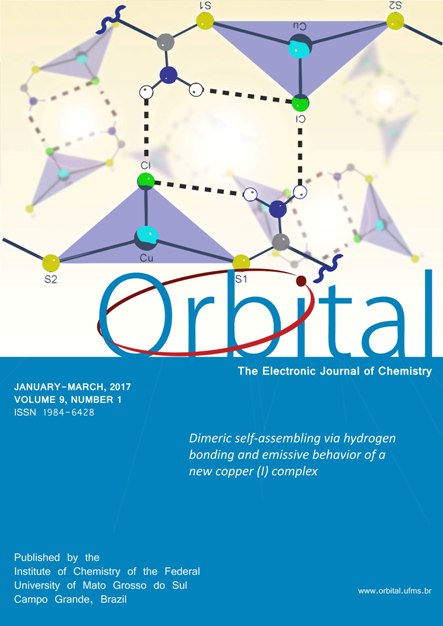Published 2017-03-31
Keywords
- depsidones,
- genotoxicity,
- lichens,
- phenolic compounds,
- SMART assay
How to Cite
Abstract
Although phenolic compounds produced by lichens have been widely investigated in antitumor assays, only a small number have been evaluated for mutagenicity and genotoxicity. This study evaluated protocetraric, hypostictic, psoromic, and salazinic acids for their potential genotoxic or antigenotoxic activity against somatic cells of Drosophila melanogaster. These compounds were isolated from the lichens Parmotrema dilatatum, Pseudoparmelia sphaerosphora, Usnea jamaicensis, and Parmotrema cetratum, respectively, collected from the Brazilian Cerrado biome. The compounds were evaluated at 0.75, 1.5, 3.0, and 6.0 mmol L–1 using the SMART test, employing standard and high-bioactivation crosses of Drosophila melanogaster. Doxorubicin (DXR) was the positive control. Psoromic and salazinic acids proved toxic at 6.0 mM. None of the compounds evaluated exhibited mutagenicity, but each of them significantly reduced genetic damage caused by DXR, proving antigenotoxic when tested on somatic cells of D. melanogaster.

